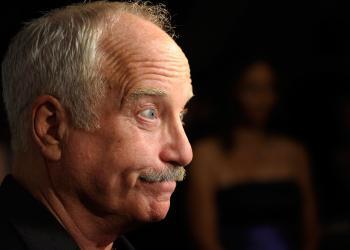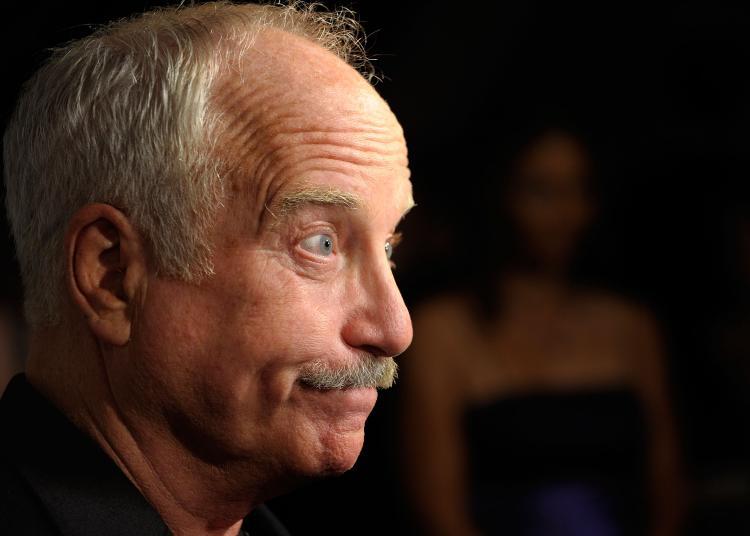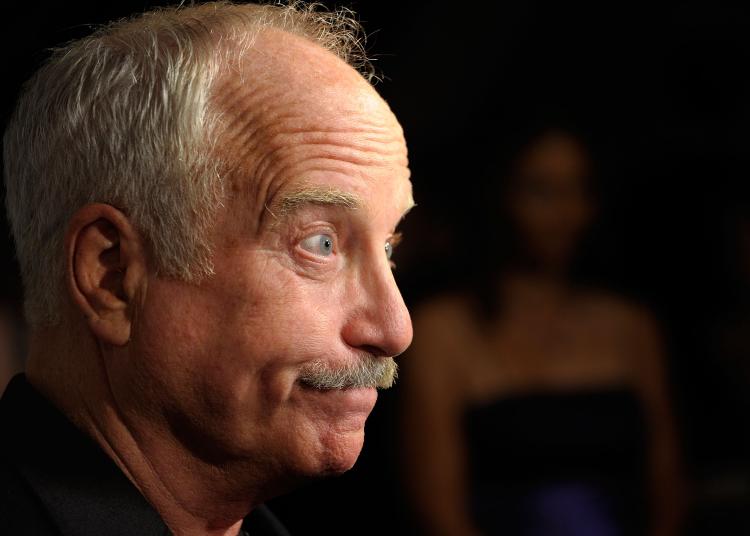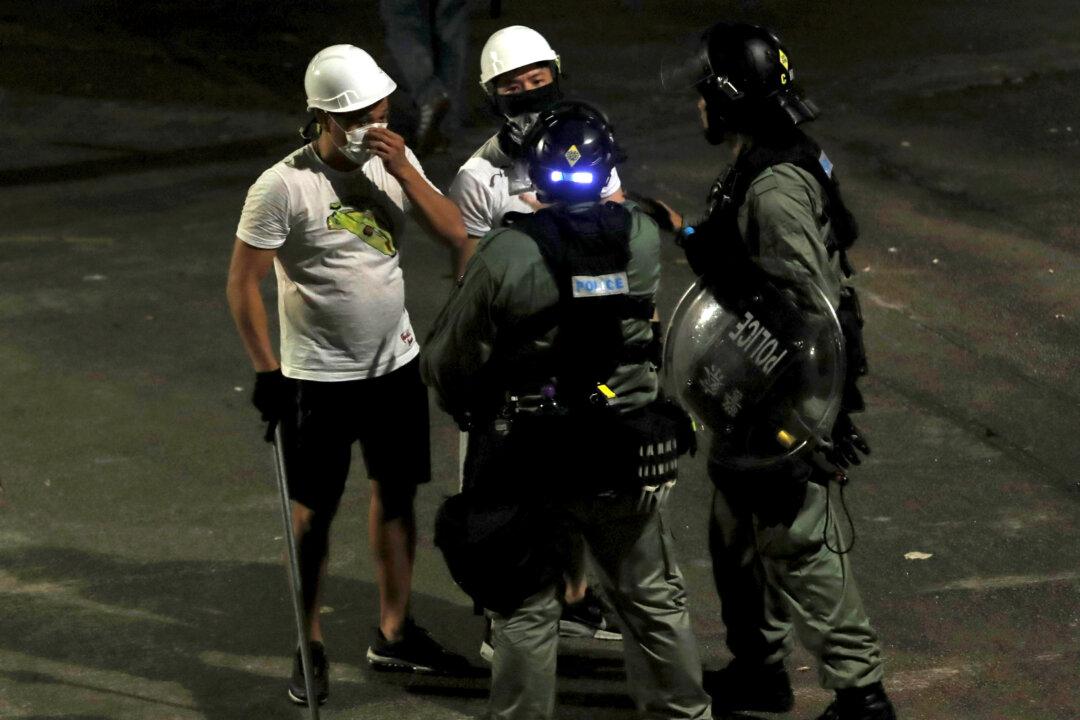A plan to bring back civics education in our schools
SAN DIEGO, Calif. – “America is falling far short in preparing its children to become leaders and participants in the democratic system,” said Oscar-winning actor and civic activist Richard Dreyfuss at a sold out open-mike forum during the San Diego Film Festival on Sept. 26. Besides sharing anecdotes and insights from his movie career, Dreyfuss mainly discussed his new aspiration to return the teaching of civics to American education.
Civics is about government and the constitution. Dreyfuss said “The American system is unique and extremely special in the history of the world, and that being a citizen is difficult and we have to be taught. In order to be an American it takes being active and learn about it or we’ll lose it.”
The following are excerpts from Dreyfuss’ discussion:
We have seen in this country a gradual derailment, eroding, of our moral behavior from the mores and traditions created by the founding fathers as the principles of Western civilizations and the Enlightenment*, meaning the protection of civil liberties, the notion that no one has the right to oppress the society, even that society’s own government. And most importantly, there is no “they,” there is only “we,” there is no they, the government. We are the government. And we must be trained in sovereignty.
We are the only nation in history that has actualized values of the Enlightenment, the ideas of reason, logic, clarity of thought, critical analysis, the values of debate, civility. Things like these are no longer held up as icons of virtue... And a dissenter is fired--in a nation founded by dissenters, we fire dissenters. And there is an enormous amount to learn about that.
What we learned, and who we are now, if you don’t teach a group who they are--who are we, why did we become who we are, why do we value what we are, or what we say we are--then when we wake up in the morning we do not know what is right and what is wrong. We have no firm foundation of ethics to stand on and will do evil things and not realize it; because we don’t know the difference, because we don’t teach that.
We are unique in many ways. But the most important is we are the only nation in the world that is bound only by ideas. We have no common ancestry, no common religion, no common military victory or defeat. We have only the ideas of the Enlightenment to bind us together as a people, and every generation of Americans must be taught what those ideas are or else we are not bound. Not only does that mean we are not a very strong sovereign nation in our inner core, but we are vulnerable to the melodrama of any other ideas that sound attractive in the moment.
“America is hard,” as Michael Douglas said in American President. America is hard, and it should be hard, and our kids should be trained rigorously in knowing the tools of civic expertise for running a republic. If they’re not, they will lose it!
There is no such thing as a people who love their country just because it’s south of Canada or west of an ocean. You have to have a reason. And we have reasons. We have the greatest reason in the world. This is the greatest miracle of governance in the world. Everyone in the world knows that, except Americans, because we don’t teach it! But we are a miracle! And that cliché vision of people getting off airplanes and kissing the tarmac is no joke. Because all you have to do is spend just a little time outside of the United States and you’ll get a really good wallop of what freedom, opportunity, mobility, freedom of thought is; because you won’t have it.
What’s good about America
I would say that America is a process; it’s not a done deal. ... America offers more virtues than sins. And no matter what sins America has committed--and it has committed lots of sins, as every nation and every empire has--no nation has ever offered people mobility and freedom, the ability to move, the ability to choose their own path.
This is a process that takes time. We are addicted to instant gratification. ... Certain answers are so large that they take time, such as changing the paradigm of what America is all about. If you read history, or have the blessing of a great history teacher, then the uniqueness of America stands out like a light cluster in the universe stands out from the darkness. There are so few victories for reason and sense, and logic and clarity; there are so few in the history of the world, which is basically the history of blood, rape, violence, oppression--the haves making sure that the have-nots remain the have-nots. That’s the history of the world with the exception of Athens, Philadelphia, and Gettysburg. And those rare exceptions are what we represent. There is nothing wrong with loving that and seducing our children into that love affair. I would like to be a match maker and introduce two lovers: America and Americans.
The process of having a constitution, the process of having a legal system means you follow it. If you don’t follow it, you don’t believe in it. It means it is a fake. And right now we don’t have an America, we have a faux America. We have a costume on. And if anything comes close to being a crisis, we put it aside for the adult notion of authoritarianism. And I don’t think we’ve come this far to do that. I don’t think we ever have a reason to give up democracy and representational democracy and the idea of a republic. People can rule themselves.
About supporting our troops
If the President [Bush] of the United States had gone to the Congress and asked for a declaration of war and had gotten it from the Congress, I wouldn’t be standing here. But if the process had been followed, then that’s what you do in a democracy. You’re getting consensus, and you follow the rules as written in the constitution such as oversight by the Congress, of which there was none. And the reason we were given to go to war in Iraq were reasons which were later admitted to be false. And that meant that the President of the United States had lied to the Congress and the people.
Where I tend to lose my sense of humor is when people equate not supporting the policy to not supporting the troops. I support the troops. I do not support breaking the law to go to war. ... The law is our bulwark, is our defense, it is our castle wall and our moat. It is the thing that we can rely on. And when we break it, and we break it brazenly, then the people who break it should be held accountable. ... They deserve to be impeached. ... They deserve to have the constitution in process. Because to put our children in harm’s way, there is no greater sin, none, when it’s your son or your daughter.
And when you said before the thing about you all volunteered--it’s true that we have no draft; it’s also true that we hold up a carrot. We offer education ... and if something happens you have to go to war; and that’s known as the draft of the poor. Now, rich men’s fights and poor men’s wars are old news, and that’s what happened in America when we stopped the draft.
I fought against the draft. I was a conscientious objector in the Vietnam War. I was wrong. I should never have been against the draft because it’s the only way the civilian population has any political control over the military. If you don’t have a draft you have no control. I learned in my life time that I was wrong. Now, anyone who turns to me and says, ‘so that means you don’t support the troops.’ I support the troops! I had an American flag on my car during Vietnam, and I was beaten a few times by guys who said I was a hypocrite. So I took the flag and I turned it upside down in the international distress signal, because we were in crisis.
No one can take my flag from me. No one can take this country from me; it’s mine. Just as much as it is anyone else’s. I am more proud of being an American than you can possibly imagine. And no one can tell me that I am not a patriot, that I don’t support the troops, that I am demonized disagreeing with the President. Disagreeing with the President is my job, and it is your job when it is appropriate to disagree.
And you can’t change horses in midstream. If you establish a nation built on dissent, then you can’t call dissenters traitors. ...
The cognitive dissident’s democracy is the goal of everyone, and when it is achieved no one wants to participate in it because everyone thinks that it is a sham. Both of those things are true in your minds. You can’t get anyone to actually work the system because no one believes in it. And yet everywhere in the world everyone actually thinks of it as the goal. That’s because it is hard, and it demands of you real, tough, hard work; not just voting, but everyday slogging, boring stuff like learning what our values are, and learning what other civilization’s values are. And we live with that dissidence. ...
The Bill of Rights--a picture of our goal of our moral character
“The Bill of Rights is far more than it says it is. The bill of rights, as a matter of fact, is one of the most glorious inventions in history. In the British Isles, for instance, there were thousands of years where Saxons and Vikings etc. pillaged and raped one another. And out of that darkness came something called England. And they never wrote down their constitution so that it can be whatever they say it is whenever they need it to be that. We on the other hand signed a specific document and said, this is our system. The Bill of Right is even more. Because the Bill of Rights is not just a picture of the rights of the individual, it is a picture of our goal of our moral character. It is saying, this is who we choose to be. And we had the courage and the naiveté to put that document up on the wall so that everyone can see it. Every time you make a mistake they can see it, and every time we succeed at it, we can see it. That gesture of the bill of rights is the iconic American gesture. It is a fantastic achievement! It is a miracle! Because we obligated ourselves in history to those freedoms and to those responsibilities openly and publicly. Every time we have failed it, we have argued about it. Every time we have succeeded about it, we have been praised. But there is nothing that has raised up more admiration for this country than writing down and signing the Bill of Rights, which was to say: the people have rights even against their own government. The people have rights, and those rights are the same for all. No one has said that in 13,000 years. ...
This is not about Bush, but a generation without civics. We have to put “We” back. We don’t know that we are the people.
End of excerpts from Dreyfuss’ discussion
Mr. Dreyfuss is a member of the Council on Foreign Relations and a founding member of the National Constitution Center in Philadelphia. He founded The Dreyfuss Initiative, a nonprofit Foundation for the purpose of advocating the return of the teachings of civics to our class rooms. An initial pilot program is planned for San Diego schools sometime next year.
Dreyfuss, 61, was born in Brooklyn, New York. His father was an attorney and is mother a peace activist. Dreyfuss has kept his place among the leading actors of the American cinema for over three decades. He is probably best known for his roles in the films Jaws, The Goodbye Girl, Close Encounters of the Third Kind, Mr. Holland’s Opus, and W. (a biographical film by Oliver Stone based on the life and presidency of George W. Bush in which Dreyfuss played Vice President Dick Cheney).
His title role in Mr. Holland’s Opus earned him an Academy Award and Golden Globe nominations for Best Actor and endeared him to the hearts of the American public as Glenn Holland, a musician and composer who takes a music teaching job in an underprivileged New York school to pay the rent while trying to compose one memorable piece of music to make him famous, and ends up, against all odds, teaching kids the skills and discipline to make beautiful music.
* Enlightenment or Age of Enlightenment is a philosophical movement that began in Europe in the 18th century.






